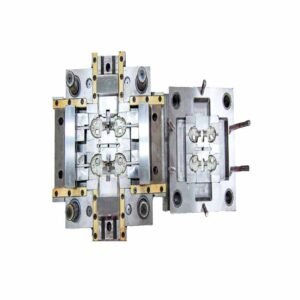Analysis of specific requirements for mold processing The specific requirements for mold processing are very strict, mainly including the following aspects:
1. High precision requirements
A mold is usually composed of a die, a punch and a mold frame, and sometimes a multi-piece assembly module may be used. Therefore, the combination of the upper and lower molds, the combination of the insert and the cavity, and the assembly of the modules all require extremely high processing accuracy. The dimensional accuracy of precision molds can usually reach the μm level, which is crucial to the performance of the mold and product quality.
2. Complex shapes
Some products, such as automotive covers, aircraft parts, toys and household appliances, have a surface shape composed of a variety of surfaces, resulting in a very complex mold cavity surface. These complex surfaces sometimes require high-precision processing using mathematical calculation methods.
3. Small batch production
The production of molds is usually not carried out in large batches. In many cases, only one mold is produced. Therefore, special attention should be paid to the balance between efficiency and accuracy during the production process.
4. Diverse processes
The mold processing process involves a variety of processes, including milling, boring, drilling, reaming and tapping. The process flow is complex and needs to be reasonably arranged to ensure the processing quality.
5. Repeatable production
The mold has a certain service life. When a mold exceeds its service life, it needs to be replaced with a new mold, so the production of the mold often needs to be repeatable.
6. Profiling
In mold production, you may face a situation where there is neither design drawings nor data. At this time, profiling is required according to the actual object, and the precision of the profiling is extremely high to ensure that the mold does not deform.
7. High-quality materials and high hardness
The mold is mainly made of high-quality alloy steel, especially the mold with a long life, usually using bainitic steel such as Cr12 and CrWMn. These steels must follow strict standards during the forging, processing and heat treatment of the blank. Therefore, the preparation of the processing technology is particularly important, and the deformation problem caused by heat treatment must also be taken seriously.
In summary, according to the above characteristics, it is crucial to choose the right machine tool, and it is necessary to ensure that the machine tool meets the processing requirements. For example, the CNC system should have powerful functions, and the accuracy, rigidity and thermal stability of the machine tool should also meet high standards, and have the ability of profiling to meet the needs of modern plastic mold manufacturing companies.

